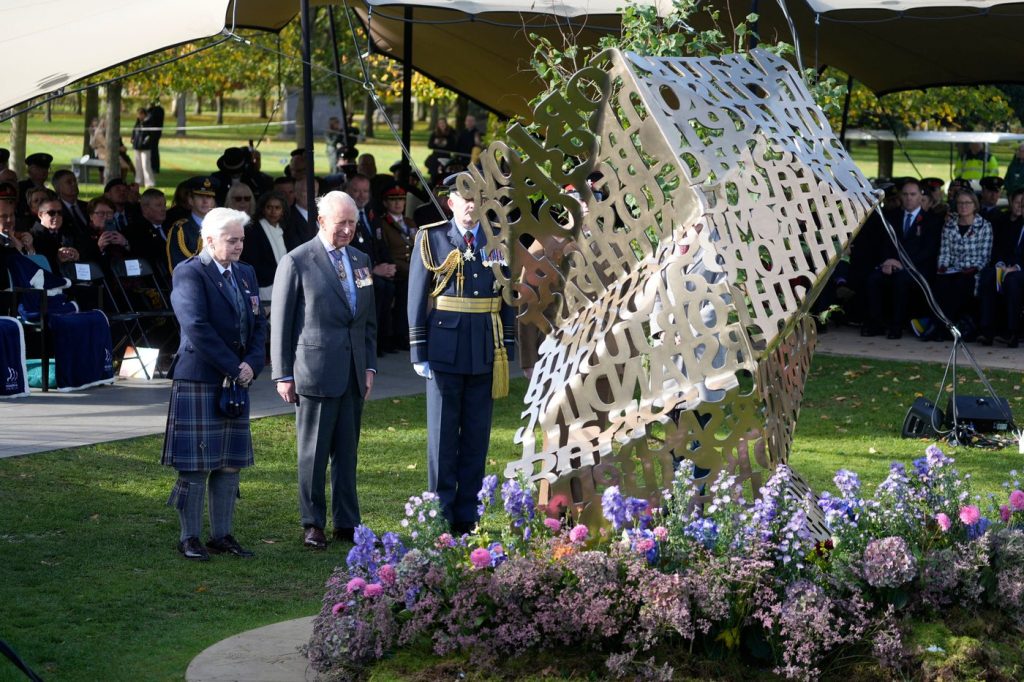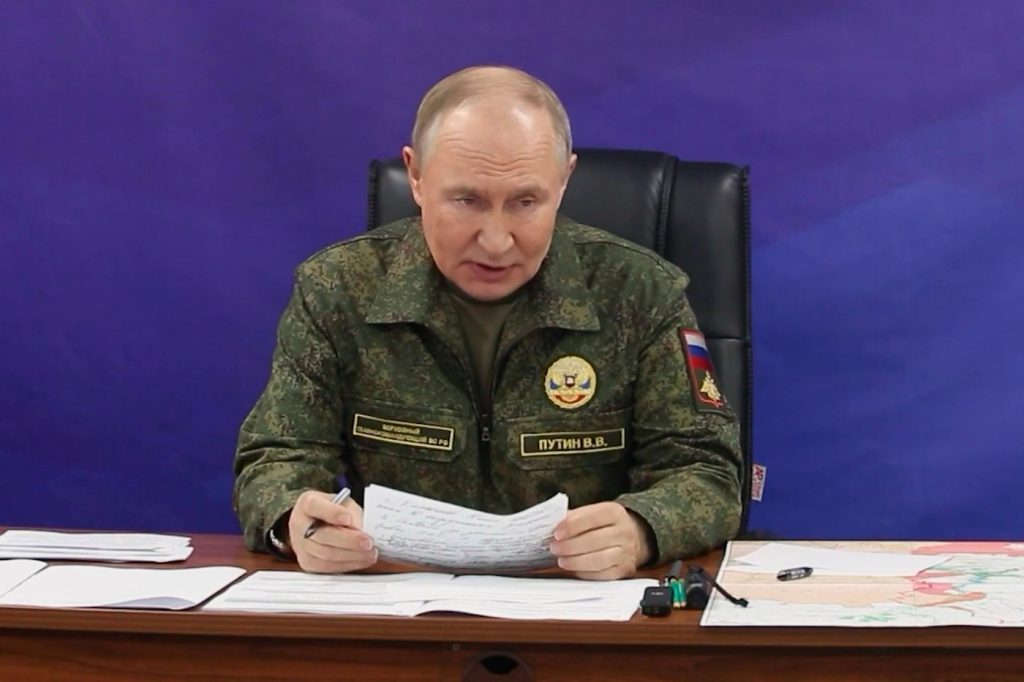LONDON (AP) – On Monday, King Charles III dedicated Britain's first national memorial to lesbian, gay, bisexual, and transgender (LGBT) troops at the National Memorial Arboretum in Central England. This dedication took place 25 years after the U.K. government lifted the ban on homosexuality in the armed forces, a significant step for LGBT rights within the military.
The ceremony was attended by numerous serving troops and veterans. King Charles, the ceremonial head of the armed forces, laid flowers at the monument, which is designed in the form of a crumpled bronze letter inscribed with words from personnel affected by the previous ban. This sculpture serves as a poignant reminder of the struggles faced by LGBT individuals in military service.
From 1967 to 2000, members of the U.K. armed forces who were identified as or suspected to be gay or transgender were deemed unfit for service, resulting in their dismissal from military ranks. Many veterans were stripped of their medals and lost their pension rights, enduring decades of stigma and psychological trauma. The ban on homosexuality was finally lifted following a 1999 ruling from the European Court of Human Rights, marking a new era for LGBT service members.
In April 2023, then-Prime Minister Rishi Sunak formally issued an apology for what he termed "an appalling failure of the British state," acknowledging the injustices faced by LGBT troops. Subsequently, a compensation program was established, providing financial recompense for veterans dismissed due to their sexual orientation or gender identity, with individual compensations reaching up to £70,000 (approximately $93,000).
The new memorial has been hailed by LGBTQ+ military charity Fighting with Pride as a significant step forward in recognizing and honoring the sacrifices made by gay and transgender troops. Claire Ashton, a former Royal Artillery member who was forced to leave the military in 1972, expressed her emotions about the unveiling of the monument, describing it as a moment full of meaning and pride. Ashton reflected on her experience, stating, "I’ve forever lived with the psychological scars of being kicked out." She emphasized the feeling of connection with others who have faced similar challenges.
Brigadier Clare Phillips, speaking at the ceremony, highlighted the transformation within the military community, stating that as a gay woman who served in the British Army for 30 years, she has seen a shift from "a life of secrecy, fear, and darkness to a career of pride, openness, and joy." Phillips stressed the importance of remembering those who fought against discrimination, saying that the unveiling of the memorial is a tribute to their legacy.
The dedication event coincided with King Charles's appearance at Lichfield Cathedral, where he faced hecklers questioning him about his brother, Prince Andrew, and his association with convicted sex offender Jeffrey Epstein. While the king did not respond to the heckler's questions, the disturbance was quickly subdued, and members of the crowd began chanting, "God Save the King." In light of recent revelations surrounding Prince Andrew’s relationship with Epstein, pressure continues to mount for Buckingham Palace and the British government to strip him of his princely title and royal residence.
The dedication of the memorial for LGBT troops marks a historic moment in recognizing the contributions and sacrifices of these individuals within the UK's armed forces, embodying the ongoing journey towards equality and acceptance in military service.












